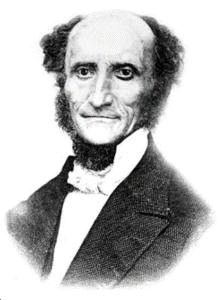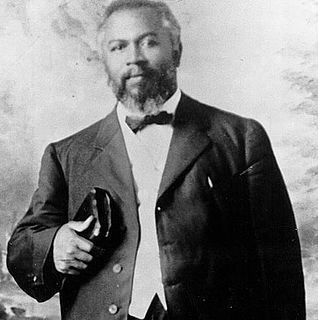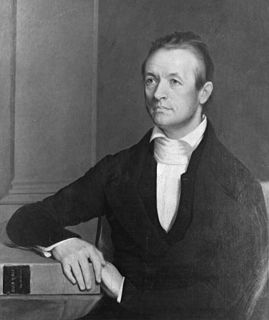Top 1200 Justification By Faith Quotes & Sayings
Explore popular Justification By Faith quotes.
Last updated on April 14, 2025.
How could one comfort a disturbed person? He is already assailed with doubts about his faith. He would have to despair with such a doctrine. Rather one must seek to convince him that the Savior is there for him, has already forgiven him, and has already accepted him. As soon as one makes faith even in the least a requirement for justification, one takes from such a person all the comfort of the Gospel.
Justification and sanctification are both God's work, and while they can and must be distinguished, the Bible won't let us separate them. Both are gifts of our union with Christ, and within this double-blessing, justification is the root of sanctification and sanctification is the fruit of justification.
The inner change, justification, is effected at the moment of salvation. The outer change in the believer's daily walk, sanctification, continues throughout life. But the progressive work of sanctification is only fully effective when the radical, inner transformation of justification is realized and appropriated by faith.
Faith, faith, faith in ourselves, faith, faith in God, this is the secret of greatness.If you have faith in all the three hundred and thirty millions of your mythological Gods, and in all the Gods which foreigners have now and again introduced into your midst, and still have no faith in yourselves, there is no salvation for you.
Faith, to be faith, must center around something that is not known. Faith, to be faith, must go beyond that for which there is confirming evidence. Faith, to be faith, must go into the unknown. Faith, to be faith, must walk to the edge of the light, and then a few steps into the darkness. If everything has to be known, if everything has to be explained, if everything has to be certified, then there is no need for faith. Indeed, there is no room for it.
It is not his business to argue men into faith, for that cannot be done; but it is his business to demonstrate the intellectual adequacy of the biblical faith and the comparative inadequacy of its rivals, and to show the invalidity of the criticisms that are brought against it. This he seeks to do, not from any motive of intellectual self-justification, but for the glory of God and His gospel.
problematic within post-Reformation dogmatics. Is faith something I `do' to earn God's favour, and, if not, what role does it play? Once we release Paul's justification-language from the burden of having to describe `how someone becomes a Christian', however, this is simply no longer a problem. There is no danger of imagining that Christian faith is after all a surrogate `work', let alone a substitute form of moral righteousness. Faith is the badge of covenant membership, not something someone `performs' as a kind of initiation test.
I think, that a man never passes the verge of moral humility, till self-righteousness be dethroned, till the high and towering imaginations of the man's own righteousness by the law be levelled by the mighty weapons of the gospel, and he brought to submit to the righteousness of God for justification, which is, in the gospel revealed 'from faith to faith.'
Our justification from sins takes place at the point of saving faith, not at the point of water baptism, which usually occurs later. But if a person is already justified and has sins forgiven eternally at the point of saving faith, then baptism is not necessary for forgiveness of sins nor for the bestowal of new spiritual life. Baptism, then, is not necessary for salvation. But it is necessary if we are to be obedient to Christ, for he commanded baptism for all who believe in him.
Martin Luther described the doctrine of justification by faith as the article of faith that decides whether the church is standing or falling. By this he meant that when this doctrine is understood, believed, and preached, as it was in New-Testament times, the church stands in the grace of God and is alive; but where it is neglected, overlaid, or denied, ... the church falls from grace and its life drains away, leaving it in a state of darkness and death.
We live in a world of terrorism where evil acts are being regularly perpetrated in the name of your faith. And because it is your faith that is being invoked as justification for these evil acts, it is your problem. You can't wish it away, or ignore it, just because it has been caused by others. Instead, speak up and condemn terrorism, defend your role in the way of life that we all share here in Australia.
The truth is that my work - I was going to say my mission - is to shatter the faith of men here, there, and everywhere, faith in affirmation, faith in negation, and faith in abstention in faith, and this for the sake of faith in faith itself; it is to war against all those who submit, whether it be to Catholicism, or to rationalism, or to agnosticism; it is to make all men live the life of inquietude and passionate desire.
We cannot have faith without belief, but we can believe without having faith. Belief is the foundation of faith. Faith is trusting in our Lord and Savior, Jesus Christ. The scriptures contain many assurances of salvation to those who exercise faith and obey the commandments... Faith is the motivating force that impels action.
Justification by religious performances, and meritorious deeds, is nothing better than the old Pharisaism with a Christian name stuck upon it. . . That doctrine makes the Lord Jesus Christ to be practically a nobody; for if salvation be of works, then the way of salvation through faith in a Savior is superfluous, and even mischievous
Solid scriptural theology should be valued in the church. Books in which Scripture is reverently regarded as the only rule of faith and practice-- books in which Christ and the Holy Ghost have their rightful office-- books in which justification, and sanctification, and regeneration, and faith, and grace, and holiness are clearly, distinctly, and accurately delineated and exhibited, these are the only books which do real good. Few things need reviving more than a taste for such books as these among readers.
The world is full of people who have lost faith: politicians who have lost faith in politics, social workers who have lost faith in social work, schoolteachers who have lost faith in teaching and, for all I know, policemen who have lost faith in policing and poets who have lost faith in poetry. It's a condition of faith that it gets lost from time to time, or at least mislaid.
I'm afraid that in the United States of America today the prevailing doctrine of justification is not justification by faith alone. It is not even justification by good works or by a combination of faith and works. The prevailing notion of justification in our culture today is justification by death. All one has to do to be received into the everlasting arms of God is to die.
It is never on account of its formal nature as a psychic act that faith is conceived in Scripture to be saving. It is not, strictly speaking, even faith in Christ that saves, but Christ that saves through faith. The saving power resides exclusively, not in the act of faith or the attitude of faith or nature of faith, but in the object of faith.


















































